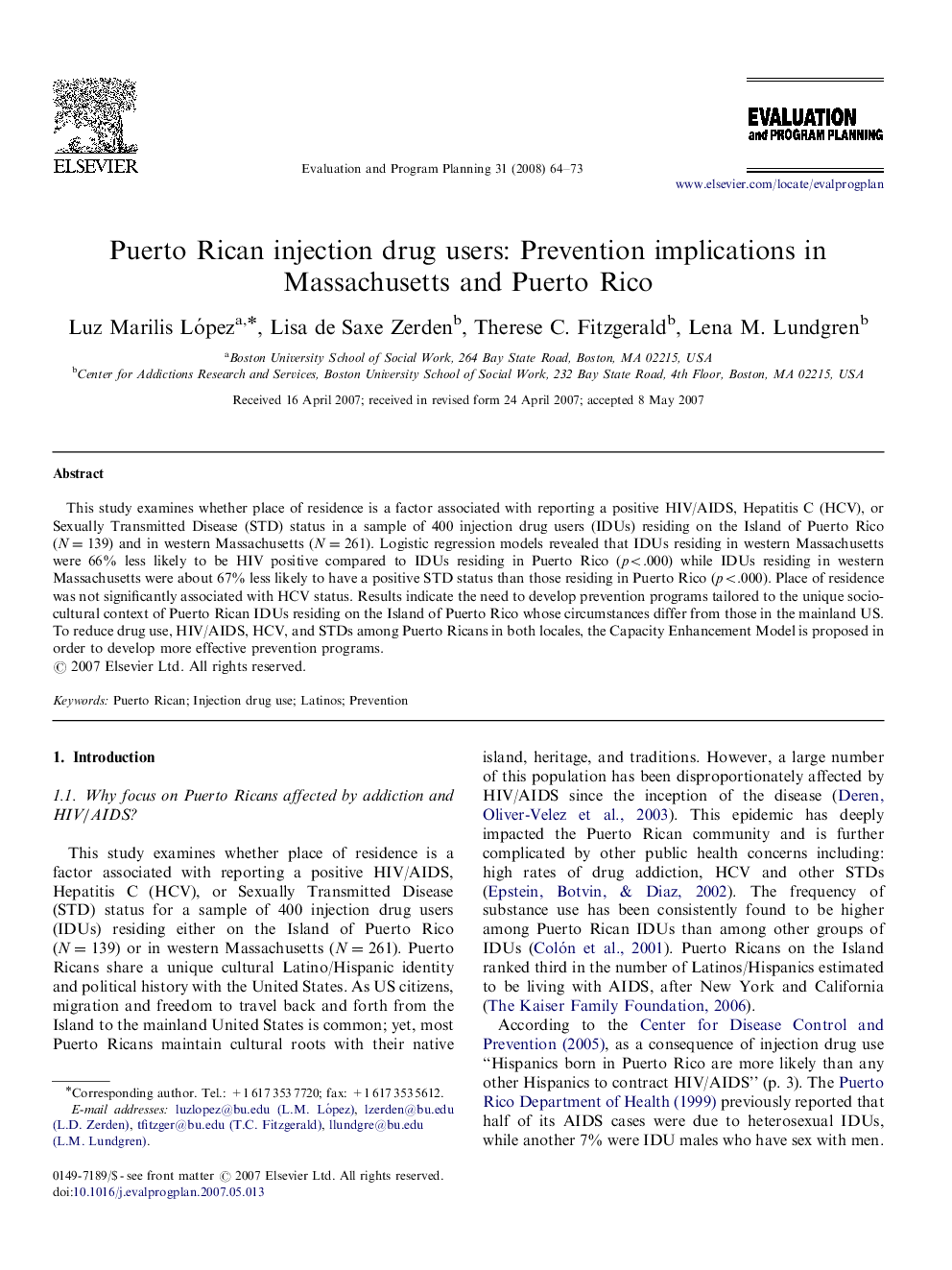| Article ID | Journal | Published Year | Pages | File Type |
|---|---|---|---|---|
| 321660 | Evaluation and Program Planning | 2008 | 10 Pages |
This study examines whether place of residence is a factor associated with reporting a positive HIV/AIDS, Hepatitis C (HCV), or Sexually Transmitted Disease (STD) status in a sample of 400 injection drug users (IDUs) residing on the Island of Puerto Rico (N=139) and in western Massachusetts (N=261). Logistic regression models revealed that IDUs residing in western Massachusetts were 66% less likely to be HIV positive compared to IDUs residing in Puerto Rico (p<.000) while IDUs residing in western Massachusetts were about 67% less likely to have a positive STD status than those residing in Puerto Rico (p<.000). Place of residence was not significantly associated with HCV status. Results indicate the need to develop prevention programs tailored to the unique socio-cultural context of Puerto Rican IDUs residing on the Island of Puerto Rico whose circumstances differ from those in the mainland US. To reduce drug use, HIV/AIDS, HCV, and STDs among Puerto Ricans in both locales, the Capacity Enhancement Model is proposed in order to develop more effective prevention programs.
